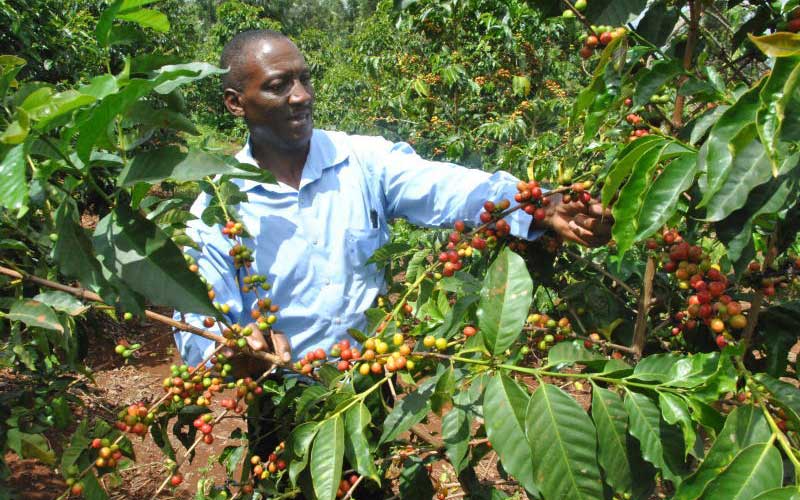×
The Standard e-Paper
Join Thousands Daily

At his farm in Mariene village, Central Imenti, Henry Kinyua, is a worried man.
For decades, his family has relied on proceeds from the sale of coffee berries to make ends meet. But now, his future, unlike the past, is no longer guaranteed, and everytime he looks at the glossy berries hanging from coffee bushes, all he sees is bleakness.